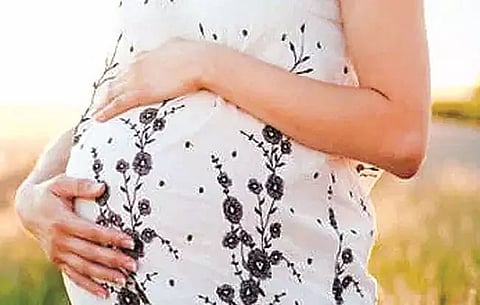
- Home
- Live Blog
- Breaking News
- Top Headlines
- Cities
- NE News
- Sentinel Media
- Sports
- Education
- Jobs

NEW DELHI: Vitamin D has received a lot of attention in recent years, and most people have heard of it. Vitamin D is also known as the "sunshine vitamin". It is produced in the skin as a result of sun exposure and can also be absorbed through food and supplements.
Most people, however, are unaware that their vitamin D levels may impair their fertility.
What exactly is vitamin D?
The most common type of vitamin D is cholecalciferol, which is found in the skin as well as some foods and supplements. The prescription form of vitamin D is vitamin D2 (ergocalciferol). According to one study, vitamin D3 is metabolised more efficiently than vitamin D2.
If we spend enough time in the sun, most of us can absorb all of the vitamin D we need. However, many women do not get enough sun exposure throughout the year to keep their vitamin D levels healthy. Because few foods are naturally high in vitamin D, getting enough of it through your diet may be difficult.
Other factors influence vitamin D levels. If you are overweight or have dark skin, you may be at risk for vitamin D deficiency. For these and other reasons, many women who are trying to conceive are likely to be vitamin D deficient.
What is the relationship between vitamin D and fertility?
Vitamin D has been linked to a number of health benefits. It appears to be linked to higher fertility and a healthier pregnancy in women trying to conceive.
According to Dr. Anubha Singh, Medical Director, Gynaecologist, and IVF specialist from Shantah Fertility Centre Vasant Vihar: "The research on vitamin D and natural fertility as well as effectiveness during fertility therapy is mixed. There are some studies showing that Vitamin D deficiency has been linked to higher success rates in both IVF and the transfer of frozen donor egg embryos. That link has not been proven in other investigations."
Although the data on vitamin D and fertility is inconclusive, several studies have found that women with Vitamin D blood levels of 30ng/ml have a higher rate of pregnancy than those with lower levels. According to studies, women with adequate Vitamin D levels are four times more likely to conceive through IVF than those with low levels.
Is vitamin D essential during pregnancy as well?
According to Dr. Shobha Gupta, Gynecologist and IVF Expert from Mother's Lap IVF Centre, Pitampura New Delhi "obtaining a normal vitamin D level appears to boost fertility as well as the chances of having a safe pregnancy. Preterm delivery, gestational diabetes, preeclampsia (extremely high blood pressure during pregnancy), and bacterial vaginosis have all been associated to vitamin D deficiency during pregnancy in studies. Taking a vitamin D supplement when pregnant is therefore beneficial to both mom and baby."
Vitamin D Supplementation for Fertility
If you are trying to conceive or have already done so, it is important to ensure that you are getting enough Vitamin D. The sun is one of the best sources of Vitamin D, and getting at least 20 minutes of sun exposure per day is a good way to boost your levels.
Aside from getting sunlight, you can also add Vitamin D to your diet by eating the following foods:
Fatty fish and seafood, including salmon, tuna and mackerel
Red meat
Liver
Egg yolks
Foods that have been fortified
Over consuming Vitamin D for an extended period can cause an excessive build-up of calcium in the body. This can lead to weaker bones as well as damage to the heart and kidneys. More than 100 micrograms of Vitamin D a day can be considered harmful. IANS
Also Read: Can yoga help with fertility? Know Here
Also Watch: